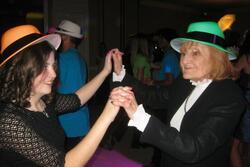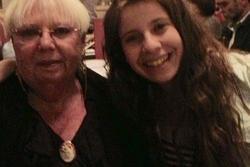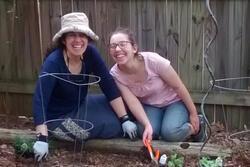Why we need to love middle school girls. Hear me out.
I have lots of stories about preteen girls. Like, lots. I’ve done my rounds as a camp counselor, older sister, babysitter, and (recently) elementary Jewish educator. I have stories about misusing urine, ginger chews, trombones, boys, and matchmaking. I feel #blessed to have been able to witness pivotal experiences in the lives of preteen girls, because preteen girls are incredible. That prime age from 9-12 is so full of learning and cat fights and personal growth; senses of humor are developing, distinct personalities are fully present, and they’re learning what it means to be an adaptable and resourceful member of this world.
I only wish that preteen girls could love themselves as much as I love them. As high up as I hold them for their intelligence, insightfulness, and vitality, I often have to remind myself that these are things that they don’t intuitively see in themselves. While talking about Moses and Korach in class one lovely Shabbat morning, I asked four of my students, all of them self-identified girls and all of them 11 years old, to write down their favorite thing about themselves; I wanted them to write down their strengths, the things that they could utilize to lead or mobilize other people. This seemed like a simple task, but with the addition of the rule: “the thing cannot be a physical characteristic,” these smart, smart girls were stumped.
My heart just broke right there in front of that whiteboard. At this point the lesson plan changed a little bit. I sat down with them, and we had a conversation about all of the things that these girls had the potential to do. We talked about what they liked to do now, what it meant to be “nice,” how to tap into empathy, and all of the badass stuff that they had the potential to do in the future. I asked them why it was so hard to think about these things; I asked them what they heard about themselves every day, and the answers were unfortunately surface-level. I mean this literally, the majority of comments received were about one of three things: clothes, hair, overall physical appearance.
The compliments were so singularly dominant that they had almost stripped my girls of their own identities. Who they are seemed to be borderline contingent on the way they looked. This is a true tragedy. The reduction of these girls’ characters is indicative of a pervasive problem within the American psyche in regards to how we treat and think about young girls.
There is still an antiquated understanding of how to treat and talk to burgeoning young women. In a post-Riot Grrrl world, we are seeing increased visibility of female role models and increased exposure of female icons. Women and women’s issues are insistent and persistent in terms of being heard, so why do we continue to treat preteen girls as objects? Maybe it’s because we’ve internalized the idea of self-esteem and poise stemming from confidence in one’s physical appearance. There isn’t anything wrong with this! Self-love is a valuable tool for so many women in the fight against patriarchal ideas that to deny this would, in itself, be anti-feminist. However, while we teach self-love, I maintain that it is vital to let young girls know that they are more than their hair, clothes, and experiments with makeup.
When girls begin to see themselves as the power houses that they truly are from the get-go of adolescence, the entire world will be exposed to a new generation of Amandla Stenbergs, Tavi Gevinsons, and Willow Smiths. Every time we reduce a girl to nothing more than her physical appearance, we lose a chance to affirm her as a real and dynamic human being; we have a chance to pay attention to her own unique ideas and experiences, we have the chance to enable her to use her God-given voice to say something that nobody else before her has said as opposed to increasing her anxiety about how she can’t get that eye-liner just right. And when girls see themselves for the brilliant and brimming vessels of potential that they are, when they feel as badass as we all know that they are, what a world we will live in.
This piece was written as part of JWA’s Rising Voices Fellowship.








I'm sharing this. I wish similar views were shared when I was in middle school. I might have been a greater support to ALL of my daughters. Thank you, JWA for your strong support of HerStory sharing.